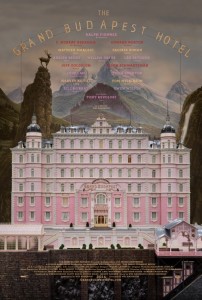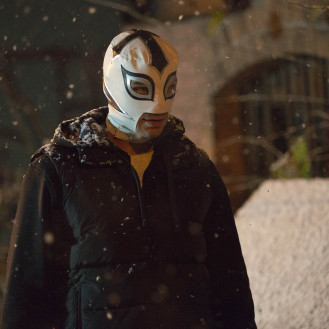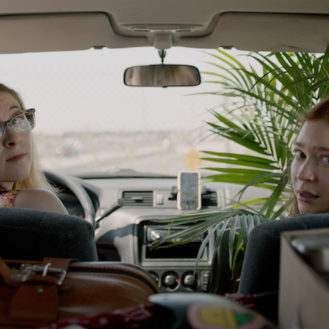Audiences can witness Wes Anderson going through filmmaking periods. We’re not exactly sure what’s triggering these changes of pace, but those willing to follow the whimsical auteur don’t regret the trip.
As of late, Anderson has been wearing his French influences on his sleeve – or, rather across his forehead. He made the transition with The Fantastic Mr. Fox and then went full-tilt Français with his highly acclaimed Moonrise Kingdom; nodding towards François Truffaut’s Jules et Jim quite often. He wasn’t ripping off any French filmmakers, but his adoration towards the carefree cinematic carnival was obvious.
Though I thought Moonrise Kingdom was one of his strongest works and one of the best films of that year, I was interested to see if Anderson would surprise us with another turn in his career or keep on peddling out passion for movies of the past. After all, despite the filmmaker having an utterly unique vision, his filmography mostly consists of movies revolving around a dysfunctional family.
With The Grand Budapest Hotel, he’s still showing his zeal for the artistic eye of the French, but working with material inspired by German penmanship. Most importantly, he’s found the balance between dedication and making something wholly fresh.
The Grand Budapest Hotel is a vibrant caper full of happy impulses and capricious crime, all cast on a pastel colour palette. This is Anderson’s attempt at escapist entertainment for the arthouse crowd, and he’s done a commendable job at making his audience giddily invested.
The film takes us through time periods that all share the elegant hotel. Jude Law plays a young writer who is quizzical towards Mr. Moustafa (played by F. Murray Abraham) about his history with the Grand Budapest Hotel. Moustafa takes the writer through a quick-snap story of how he was once a lobby boy under the supervision of cheeky concierge Gustave H (played with lots of energy by a fun-loving Ralph Fiennes).
It’s appropriate that Moustafa’s story has the imagination of a colourful storybook, and even more appropriate that Anderson’s comedy resembles one. All the filmmaker’s tricks are in tact – including precise snap zooms and perfectly executed, well timed pans with the camera – and regulars normally found in Anderson’s work all turn up in his latest romp (Bill Murray, Jason Schwartzman, Jeff Goldblum, Tilda Swinton, etc.). The Grand Budapest Hotel does, however, rapidly feature so many familiar faces, that it signals towards the audience that the star power runs the risk of consuming this humble story.
The Grand Budapest Hotel often has us laughing at humour so farcical and playful, we have to ask ourselves if we really saw what just happened. A finale involving Goldblum’s encounter with Willem Dafoe’s intimidating Jopling had me in stitches.
But, the heart of the story is always there and never trades itself in for a cheap gag or emotion manipulator. It cuts to the chase and moves along nicely, but also doesn’t shortchange us in any way. As well, it pleasantly proposes the idea of legacy without over enunciating the time spans in the narrative.
I’m glad Wes Anderson is astute with the films he makes – The Grand Budapest Hotel is no different. It’s funny, surprising, and gorgeous. That said, I don’t want to see another flick like this from Anderson any time soon. With The Grand Budapest Hotel, he successfully leaves another station opening himself up for another juncture.





Be the first to comment